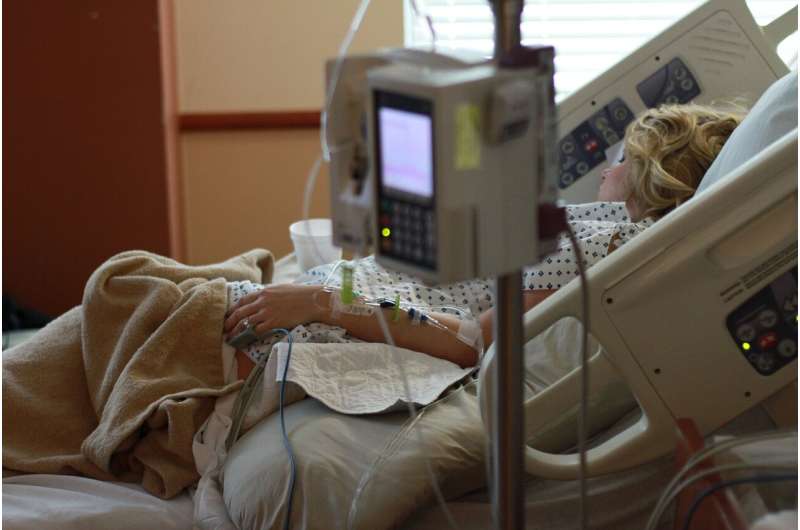Terminally ill who request doctors make decisions undergo more aggressive final treatments

Terminally ill patients who request that physicians make decisions on their behalf are more likely to receive aggressive treatments in the weeks before they die, according to a Rutgers study.
The study, published in the Journal of Pain and Symptom Management, is the first to examine if personal beliefs and attitudes of both patients and physicians affect end-of-life treatments that can be painful and risky.
The findings call attention to the fact that patients are accepting aggressive treatments and highlight the need for better education about end-of-life care.
"Some physicians are very comfortable taking over the decision-making for their terminally ill patients. An important and surprising finding is that when physicians do take charge of treatment decisions, patients are more likely to receive aggressive interventions at the end of life," said lead author Paul Duberstein, chair of the Department of Health Behavior, Society and Policy at Rutgers School of Public Health. "As a result, patients end up in intensive care units or emergency rooms in the days before death, even though most people would rather die peacefully at home.
The researchers examined chemotherapy use and hospitalizations or emergency department visits in the last 30 days of life of 265 patients who had been cared for by 38 oncologists. They found that patients of physicians who were comfortable offering aggressive medical interventions were more likely to receive chemotherapy and endure difficult hospitalizations in the days and weeks before dying. Patients who had unfavorable attitudes toward palliative care and those who wanted to try medically unproven cancer treatments were also more likely to receive aggressive interventions.
"Many studies have examined doctor's attitudes, but few have examined if doctors' attitudes affect end-of-life care," Duberstein said. "We found that doctors' attitudes can have detrimental impacts and prevent those who are close to death from receiving the emotional support needed at that time."
The findings show the importance of providing patients with access to information about how doctors handle high-stakes treatment decision-making. "That information is not publicly available, but it needs to be," he said.
The findings also have clinical and ethical implications regarding the care of patients with advanced diseases.
"We need to do a much better job teaching doctors about the psychology of death and dying, improving the way we educate the public about the benefits of palliative care and providing care for patients and families with advanced disease," Duberstein said.
More information: Paul R. Duberstein et al, Physician and Patient Characteristics Associated With More Intensive End-of-Life Care, Journal of Pain and Symptom Management (2019). DOI: 10.1016/j.jpainsymman.2019.04.014



















